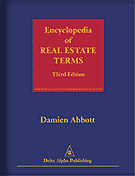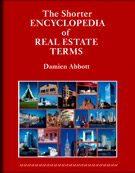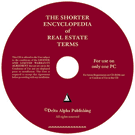value
1. Derived from the Latin valere, or the Old French valoir, 'to be worth'. That which is good or desirable, or the result of owning or using something that is good or desirable in itself. The relative benefit or satisfaction to be derived from something; either (a) by use or possession—its intrinsic good or usefulness; or (b) by exchange for something else—its extrinsic advantage or price. A subjective assessment of the merit, desirability, worth or utility of a property at any point in time. Thus, 'value' is not a fact but an economic concept based on a estimate made in accordance with a particular basis or methodology.
The estimated price that could be achieved if a property is sold in the open market. "[T]he monetary relationship between properties and those who buy, sell, or use those properties. Comment: 'value' expresses an economic concept. As such it is never a fact but always an opinion of the worth of a property at a given time in accordance with a specific definition of value. In appraisal practice, value must always be qualified – for example, market value, liquidation value, or investment value", The Appraisal Foundation, Uniform Standards of Professional Appraisal Practice (USPAP) (Washington, DC: 2008-2009 Edition), 'Definitions'.
The word 'value' has a variety of meanings according to the context. In economics, value is given two meanings; it "sometimes expresses the utility of some particular object, and sometimes the power of purchasing other goods which the possession of that object conveys. The one may be called 'value in use' the other, 'value in exchange'",
Adam Smith, Wealth of Nations (1776), Book I, Ch. 4. The value in use may be considered equivalent to the 'worth' to the user. The value of something at any point in time, is a
function of four factors: (i) utility—its ability to satisfy human wants or to be of use to someone (especially 'marginal utility', i.e. the extra benefit to be derived from one more unit of the commodity, which in turn is a function, but normally an inverse function, of how much we possess already); (ii) scarcity—the inadequacy of the
available quantity to meet demand, i.e. the supply relative to the desire for
it; (iii) taste—the total quantity of that which is desired or preferred; (iv) transferability—the ease with which an alternative can be made available. Value may also be considered a function of (a) demand, which depends on the amount a consumer wishes to pay (the price), the price of substitutes, the total level of consumer income, and consumer tastes or preferences; and
(b) supply, which depends on the profitability and the price of the factors of production (i.e. the cost of land, labour and capital) required to produce more of the same, the ability to produce substitutes, and producer tastes or preferences. In essence, value is not dependent on any one factor, nor on an interaction
of objective and subjective, intrinsic and extrinsic, and determinable and
determining factors. To Karl Marx the dominant factor was labour; "all
commodities are only definite masses of congealed labour time", Das Kapital (1867), Pt. 1. Ch. 1, p. 1. To William Stanley Jevons "value [in the context of a marginal increase] depends entirely on utility", The Theory of Political Economy
(4th ed. 1871), Ch. 1, p. 1. To Alfred Marshall it was "relative and expresses
the relationship between two things at a particular place and time" Principles of Economics (7th ed. 1890), Book II, Ch. 2, p. 61. To a home owner it may be measured in comfort, convenience and congeniality. And to a modern real estate investor it is primarily a function of the total income or return that can be obtained from a property in the future; or the power that the ownership of the property represents for use and occupation; or its use as a medium of exchange, either for other property or for money.
The intrinsic factors that may affect the value of real estate include topography, soil, plot size and shape, improvements, utilities or services, title, property rights and interests. The extrinsic factors include accessibility, location, climate, zoning or land use planning, taxation, building restrictions, consumer preferences. When considering the 'value in use', the intrinsic factors may dominate; when considering the 'value in exchange', the extrinsic factors may dominate. In the final analysis, the value of a plot of land or building, at any point in time, depends on the interaction of these
factors as assessed by individual wants and needs. A plot of land may be readily accessible, level, zoned for offices and in a tax free area, but have little or no value if no one needs it. On the other hand, it may be irregularly shaped, unsuitable for building, be held on a short lease, but have premium or nuisance value because it provides access to a site that is suitable for immediate development.
Value may have different meanings, even for the same property, according to the context or the use of the word. For example, to a landowner it may mean market value, or replacement value; to a mortgagee, loan value; to a tenant, rental value or annual value; to an insurer, insurable value; to a shareholder of a company, asset value or going-concern value and to an occupier who is liable for a property tax, assessed value(AmE)
or rateable value(brE).
However, unless qualified or varied by the context, value in real estate normally means 'market value'.
In the US, for taxation purposes, 'value' is "almost invariably governed by the judgment of the free market place. It is the worth established by the bargaining process of a willing buyer and a willing seller"; thus it is equivalent to fair market value (In re Montpellier & Barre R.R. Corporation, 135 Vt 102, 369 A.2d 1379, 1381 (1977)). In relation to assessing just compensation in eminent domain proceedings, value means "the value of which the owner has been deprived … at the time of the taking", United States v. 7.2 Acres of Land, 117 F Supp 499, 502 (DC Tenn 1953)—which is generally assessed as the 'fair market value'. See also actual cash value, book value, capital value, cash value, collateral value, current use value, economic rent, estimated future rental value (BrE), existing use value, hope value, intrinsic value, investment value, leasehold value, marriage value(BrE), mortgage value,
net asset value, net present value, open market rental value, open market value (BrE), par value, present value, real value, residual value, reversionary value, valuation.
Appraisal Institute. The Appraisal of Real Estate (11th ed. 1996), Ch. 2 'The Nature of Value'.
D.C. Ling & W.R. Archer. Real Estate Principles: A Value Approach (New York: 2005), Part 2 'Sources and Limitations of Value'.
A.A. Hyam. The Law Affecting Valuation of Land in Australia (4th ed. Pyrmont, NSW: 2009), Ch. 2 'Value defined'.
J. Armatys et al. Principles of Valuation (London: 2009), Ch. 2 'Concept of Value and Glossary'.
Nick French. Word Play. [1998] 03 EG 130-131.
W. Britton, K. Davies and T. Johnson. Modern Methods of Valuation (8th ed. 1989), pp. 3-5.
2. Valuable consideration; something of economic value that is given to support a simple contract.
In English law, in the phrase 'purchaser for value', 'value' means any consideration in money or money's worth or marriage. In this context, a promise made in consideration of a future marriage (an ante-nuptial agreement) is deemed to have been made for value (A-G v Jacobs-Smith [1895] 2 QB 341), but a promise made in respect of a past marriage (a 'post-nuptial agreement') is not. Also, 'good consideration', i.e. love and affection or a strong moral obligation, is not deemed sufficient to constitute 'value'. Value can be given even if the amount is nominal (e.g. £1); or not equivalent to the full worth of that which is received (Midland Bank Trust Co Ltd v Green [1981] AC 513, [1981] 1 All ER 153 (HL)).
In the US, a few jurisdictions accept that a 'purchaser for value' may pay any amount, however nominal, to enjoy the protection accorded to one who will not be affected by an unrecorded interest in land.
However, most jurisdictions require an amount that bears a fair relation to the property being transferred,
although that amount need not be equivalent to the market value (James v. James, 80 Cal App 185, 251 P 666 (1926); Anderson v. Anderson, 435 NW.2d 687 (ND 1989); 4 Am.L.Prop, § 17.10 nn. 8-10). See also bona fide purchaser.
|




